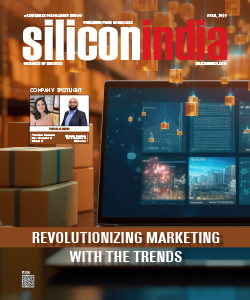Soon You Won't Need To Carry Multiple Documents For Air Travel
BARCELONA: Thanks to new revolutionary technology, airline passengers could soon be able to travel through airports and borders with just a 'secure single token' eliminating the need of carrying multiple travel documents.
Airline solutions and technology provider SITA is exploring the potential of newly-emerging 'blockchain' technology to provide travellers with a 'secure single token' which was previewed at the 2016 Air Transport IT Summit here in this Spanish city.
The revolutionary technology provides the opportunity to allow secure biometric authentication of passengers throughout the journey across borders which could remove the need for multiple travel documents without passengers having to share their personal data.
SITA's technology research team, SITA Lab, is researching how using virtual or digital passports in the form of a secure single token on mobile and wearable devices could reduce complexity, cost and liability around document checks during the passenger journey.
Jim Peters, CTO, SITA, said, "Our vision is for seamless secure travel. But the underlying design of today's computer systems means that there are multiple exchanges of data between various agencies and multiple verification steps, which reduces the ability to have a single global system".
"Now blockchain technology offers us the potential to provide a new way of using biometrics. It could enable biometrics to be used across borders, and at all airports, without the passenger's details being stored by the various authorities," he said.
SITA's researchers are investigating a versatile and secure system to make the single travel token work globally, across all borders. Blockchain technology allows 'privacy by design' so that passenger data can be secure, encrypted, tamper-proof and unusable for any other purpose.
It also eliminates the need for a single authority to own, process or store the data. The crypto-led computer science of blockchain provides a network of trust, where the source and history of the data is verifiable by everyone.
"This is a whole new way of working but ultimately 'The Blockchain' is simply a database where transactions are recorded and confirmed anonymously. Whether it is used for currency or travel it is simply a record of events that is shared between multiple parties but most importantly once information is entered, it cannot be changed, and privacy and security are by design," Peters added.
REOPENS FGN 18
SITA's Passenger IT Trends Survey released here also showed that airline passengers the world over have taken to technology in a big way, preferring to use it as a service rather than interacting with people for support.
Significantly, passengers are happier at the stages of the journey where they have more choice and control in how they manage their trip. At booking, which they can do online, using a mobile or with an agent, 93 per cent had a positive experience, the survey found.
"Once people are converted from person-to-person interaction to using self-service technology for travel steps, few want to go back," the survey said.
It found that passengers have the most negative experiences at security screening, passport control and baggage collection stages which are also the points with the least number of self-service technology options.
"Knowing that passengers prefer using their own devices and self-service technology throughout the journey should encourage airlines, airports and government to examine how they can transform the experience at security, border control and baggage collection. The technology is available today and the industry can be confident that it will be welcomed by passengers," said Francesco Violante, CEO, SITA.
But not all passenger are the same as SITA has identified four different passenger profiles - the careful planner, the pampered, the hyper-connected and the open-minded adventurer.
Each profile uses technology in different ways and the study shows that a 'one-size fits all' approach risks alienating some passengers. To help illustrate the differences SITA has also made it possible for people to find out their own passenger profile.
Violante, added, "It is clear that passengers love technology. Once they start to use kiosks, websites, mobile devices, automated gates and other tech they will continue to do so rather than returning to human interaction. As airlines and airports look to introduce new technology they should also note that 'ease-of-use' is vital for passengers".
Other key findings from the survey include - a majority of passengers (55 per cent) use some self-service technology on their journey but the end-to-end self-service journey is not yet widespread.
If passengers have a negative experience, 54 per cent will try a different self-service technology. When using mobiles for travel 92 per cent find check-in easy to use.
Passengers also indicated they want more mobile services and baggage notifications are a top priority, said the survey which was conducted with more than 9,000 passengers from 19 countries across the Americas, Asia, Europe, the Middle East and Africa representing almost three-quarters of global passenger traffic.
Read Also:
From Dark stories to a Bright present: Here is the real life "Wordsmith"





.jpg)